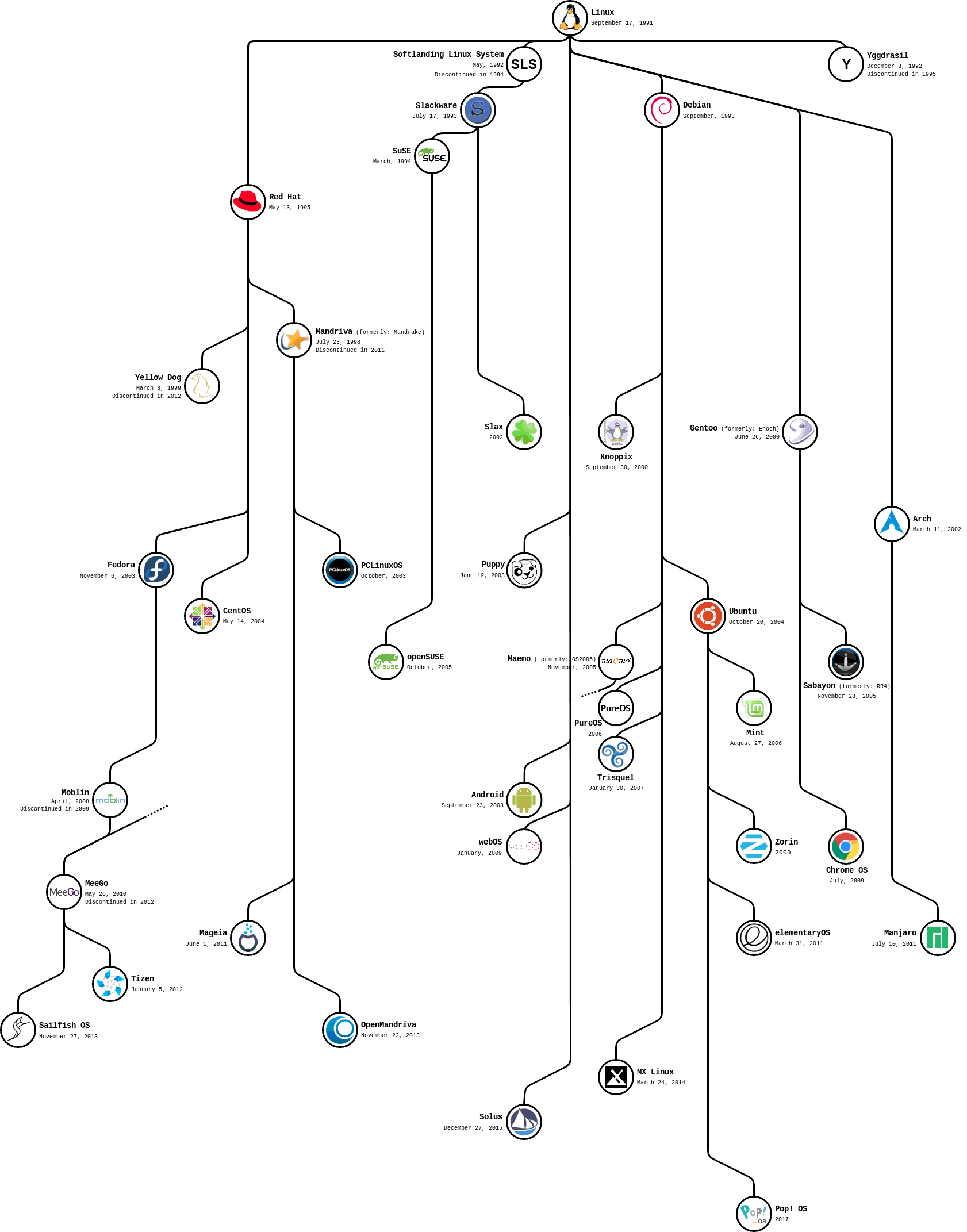Linux, a name that resonates with power, flexibility, and reliability in the computing world, has a history as rich and diverse as the ecosystem it has spawned. From its humble beginnings to becoming the backbone of modern computing, Linux's journey is a testament to the power of open-source software and community collaboration.
The Genesis of Linux
It all began in 1991, in Helsinki, Finland, with a young computer science student named Linus Torvalds. Dissatisfied with the existing operating systems, which were either too expensive or didn't meet his standards, Torvalds set out to create his own. What started as a personal project to develop a free operating system kernel turned into something much bigger than Torvalds could have ever imagined. On August 25, 1991, he announced the project on a Usenet newsgroup, marking the official birth of Linux.
Linux's Open-Source Model: A Game Changer
One of the most revolutionary aspects of Linux was its open-source nature. Torvalds decided to make Linux freely available to anyone, allowing users to modify, distribute, and contribute to the software. This open-source model was a stark contrast to the proprietary software of the time, fostering a sense of community and collaboration that became the backbone of Linux's development. 🌐
Linux vs. Other Operating Systems
| Feature | Linux | Windows | macOS | | ---------------------- | ----------------------------------------------- | --------------------------------- | ------------------------------ | | Kernel | Linux Kernel | Windows NT Kernel | XNU Kernel (Hybrid) | | License | Mostly GNU GPL | Proprietary | Proprietary | | User Interface | Various (e.g., GNOME, KDE, XFCE) | Windows Desktop | Aqua (Desktop Environment) | | Package Management | Package Managers (apt, yum, etc.) | Microsoft Store (WSL) | Homebrew (Third-party) | | File System | Ext4, Btrfs, XFS, etc. | NTFS, FAT32 | APFS, HFS+ | | Shell | Bash, Zsh, etc. | Command Prompt, PowerShell | Terminal (Bash, Zsh) | | Commercial Support | Available from vendors like Red Hat, SUSE, etc. | Microsoft Support Services | Apple Support Services | | Customizability | Highly customizable | Limited | Limited | | Hardware Support | Broad range of hardware support | Wide range, with some limitations | Limited to Apple hardware | | Open Source | Fully Open Source | Proprietary | Darwin (Kernel) is Open Source |
The Growth and Diversification of Linux
As Linux's popularity soared, so did its applications. From powering servers and supercomputers to running on embedded devices like smartphones and TVs, Linux's versatility is unmatched. The operating system's architecture, which allows for high customization, has made it a favorite among developers and tech companies alike.

growth of various sub-systems in the Linux Kernel [Source: Godfrey and Tu 2000].
Linux Distributions: The Flavors of Linux
One of the unique aspects of Linux is its distributions (distros). These are various versions of Linux, each tailored for specific needs. Popular distros like Ubuntu, Fedora, and Debian have made Linux accessible to a wider audience, from beginners to advanced users. Each distro comes with its own set of pre-installed software and desktop environment, making Linux incredibly versatile. 📊

Major Linux Distributions
Linux and the Rise of Open-Source Software
Linux's success has propelled the open-source movement, demonstrating the viability of open-source models in producing high-quality, secure software. Today, open-source principles underpin many technologies, from web servers to smartphones.
The Impact of Linux on Modern Computing
Linux's influence extends beyond its technical achievements. It has challenged the traditional business models of software development, emphasizing collaboration over competition. Linux runs on 96.3% of the top 1 million web servers, a testament to its reliability and performance. Furthermore, it's the foundation of Android, the most popular mobile operating system, showcasing its versatility and adaptability.
The Future of Linux
As we look to the future, Linux's role in emerging technologies like cloud computing, Internet of Things (IoT), and artificial intelligence (AI) is undeniable. Its ability to adapt and evolve ensures that Linux will continue to be a cornerstone of modern computing for years to come.
Conclusion
The evolution of Linux is more than just a story about software development; it's a narrative about community, innovation, and the democratization of technology. From Linus Torvalds' initial post in 1991 to the global phenomenon it has become today, Linux's journey is a powerful reminder of what can be achieved when we work together towards a common goal. As Linux continues to shape the future of technology, its impact on the world cannot be overstated. 🚀
Linux has not only revolutionized the way we interact with technology but has also paved the way for a more open, collaborative future in software development. Its story is far from over, and its potential is limitless. Whether you're a developer, a tech enthusiast, or just curious about the digital world, Linux's evolution is a fascinating chapter in the history of technology, one that continues to inspire and innovate.
Remember, the beauty of Linux lies in its community. Whether you're a seasoned developer or a newcomer eager to learn, there's a place for you in the Linux world. Explore, contribute, and be part of the ongoing evolution of this extraordinary open-source project. You can contribute through various forums, developing packages, code contribution, etc.🌟